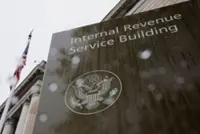New York: The world’s main verifier of corporate climate targets will let companies use carbon credits to reduce the broadest scope of their emissions, relaxing earlier guidance and galvanising a controversial market for green finance.
The United Nations-backed Science Based Targets initiative (SBTi) said it will allow the use of credits to cut emissions from value chains, otherwise known as Scope 3, according to a statement on its website.





